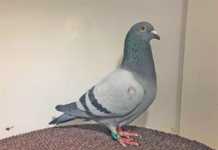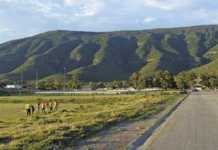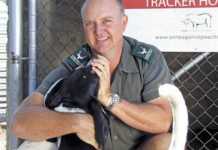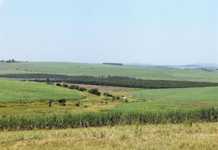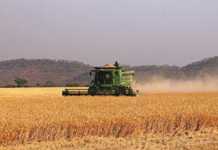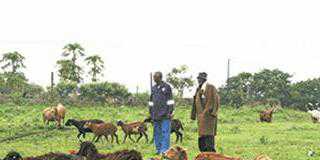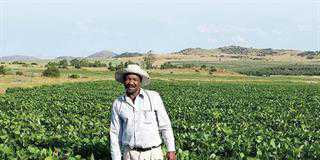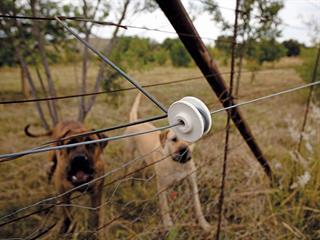
Dr Braam Cohn lives on an agricultural holding in Hluhluwe, KwaZulu-Natal. Earlier this year, one of his workers showed him a 900mm x 900mm hole cut into the game fence surrounding Cohn’s land. The intruder’s footprints were clear and Cohn photographed them, a habit he has developed as poaching is a serious problem in the Hluhluwe area. He then drove around his land to see if his game was safe.
Later that day, a domestic worker on the farm told Cohn that she had seen the footprints of a man in the vicinity of the house and workers’ quarters. That evening, as Cohn and his wife were about to sit down for tea, a scream from one of the domestic workers rent the silence.
Between two and four intruders had managed to scale the Bonnox fence with its four strands of electrified wire that surround the property, as well as the 16-strand electric fence surrounding the Cohns’ house. Cohn hastily locked the house and alerted surrounding farmers on the Whatsapp security group they belong to. “Within a couple of minutes there were hordes of neighbours surrounding our holding. A helicopter that was already in the air on a poaching-related call also assisted,” he recalls.
Cohn believes the scream spoilt the element of surprise that the intruders had been counting on and they had fled almost instantly.
More danger, less freedom
“We used to sit with our doors unlocked and wide open. We were never scared,” says Cohn. That was until February this year, when well-known local farmer Terence Rizzato was shot and killed on his Hluhluwe farm. “If the Commandos were still active, there wouldn’t be a problem,” insists Cohn, who maintains that this was a well-armed, organised and effective force.
After this most recent incident, Cohn intends acquiring two-way radios and beefing up their security even further.
“We bought a smallholding to have freedom,” he says. “We stocked it with game and used to walk and watch the animals without fear.” Now, apparently, few go out unarmed or alone.
“It’s fatal to think that one is untouchable,” says Cohn.
Shocking stats
A report presented to the SA Human Rights Commission in 2014 by General Chris van Zyl (Retired) from TAU, shows that it is more dangerous to be a farmer in South Africa than it is to be a police officer. According to TAU, a study by Dr Johan Burger from the Institute for Security Studies showed that the national murder average per 100 000 South Africans was 31,1 for the general population, 54 for police officers and 132,8 for farmers.
According to Van Zyl, who is assistant general manager on policy issues at TAU, statistics show that farm attacks and murders in northern provinces are higher than those in the south. “This opens up [the] question as to what role land claims have on attacks and murders,” he says.
If government wishes to give its attention to rural safety, dedicated personnel and logistical capacity are needed, stresses Van Zyl. Meanwhile, TAU supports farm watches. How the system works Jaap Naudé, a farmer from Amsterdam, Mpumalanga, helped set up the Westoe Farm Watch (WFW) in the area. For him, communication is one of the critical aspects of farm security. With the increased reliability of two-way radios, between 15 to 20 of the WFW members will always hear if something is amiss.
“Losing a minute can be critical if there is an attack,” adds Naudé.
WFW checks in twice a day with members on their two-way radios. If any member fails to reply, the WFW is mobilised. This sees trained and armed members heading out to the non-responding member’s farm. Others set up roadblocks, man radios and, if necessary, keep crime scenes uncontaminated until forensic experts arrive.
Members meet each Saturday to discuss the safety of individual houses. They also endeavour to familiarise themselves with each other’s farms, so that in case of an attack, members will know where entrances and exits are, and how to get around the property if need be.
WFW needs special permission for roadblocks and organises these through members who are also police reservists. “We have positive meetings with police every month and point out where police assisted us,” says Naudé.
‘Run like a business’
Trevor Roberts was part of TAU’s security committee and chief of civil protection in Krugersdorp’s rural environs. For years, he made himself available to go to any incident, from a farm attack to a stock theft. This, he says, made him realise that the only way to keep an area secure was to run a farm watch like a business, with all the professionalism that this implied.
In 1999 he founded Conserv Security, which visits communities and gives lectures on organising against crime. It helps set up communication networks, puts up signs, provides maps, and trains personnel in patrolling, first aid and fighting veld fires. Roberts advises having a legal team on standby for the community watch programme, preferably involving a local attorney who can help with any eventuality.
Kobus Breytenbach, chairperson of AgriSA’s rural safety committee adds that a professional relationship with the local police, especially the station commander, leads to better and more effective service delivery. In addition, he stresses the value of patrols. “Effective patrol by farmers has definitely led to decreases in crime,” he says.
Email Jaap Naudé at [email protected]. Phone Trevor Roberts on 083 454 6528, or email him at [email protected]. Visit www.conservsecurity.com).

